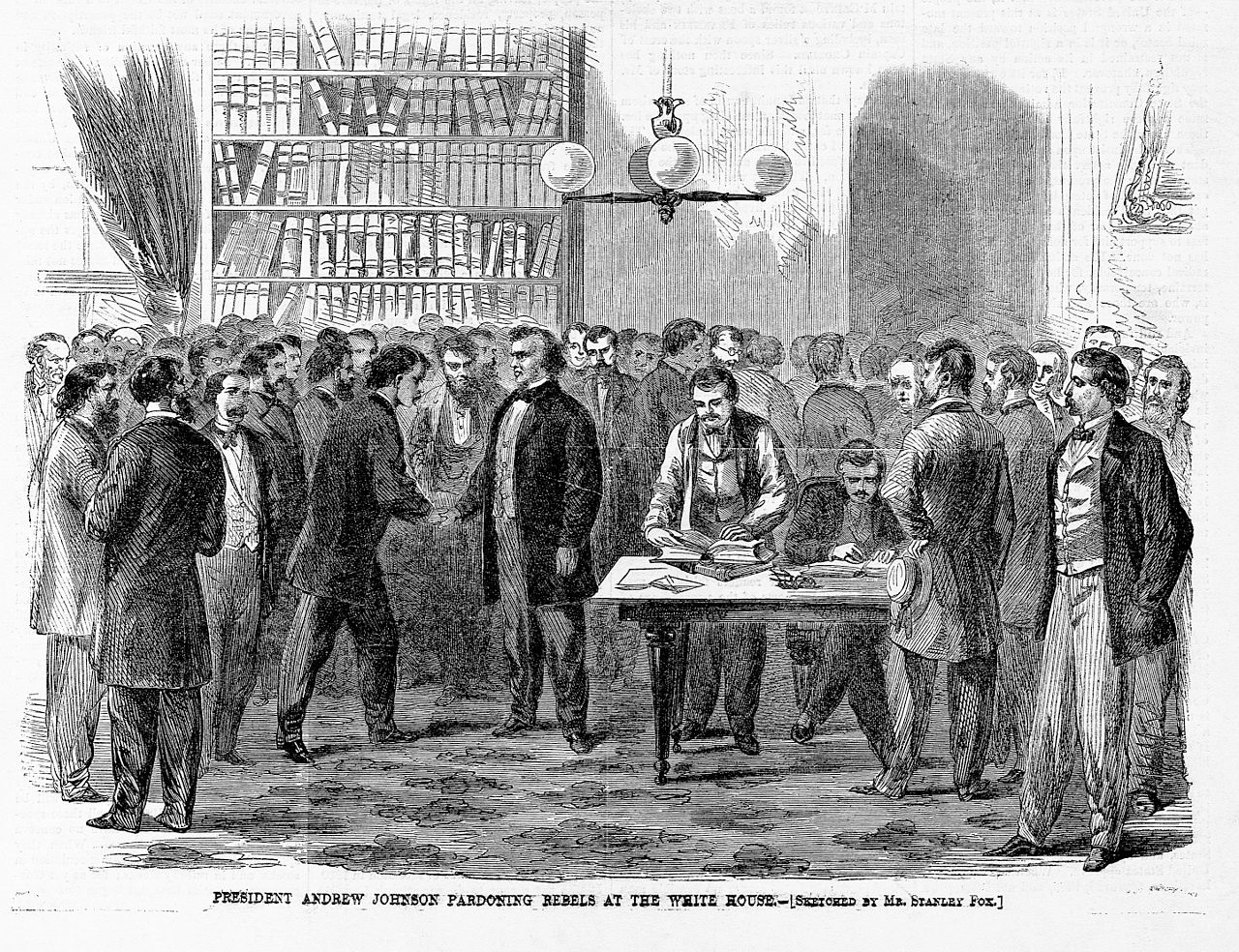Ford’s pardon is now considered the most controversial in our history. But the post-Civil War pardons of President Andrew Johnson shocked the nation, galvanized his political opponents, led to his impeachment, and set back the cause of civil rights for decades.
When Johnson became president upon the death of Lincoln, he appeared to be continuing the program of clemency that Lincoln had suggested. But he soon grew even more lenient than his predecessor.
Johnson wanted the southern states to revive their economy and society, but he wasn’t ready to see former Confederate leaders resume their political power. So in May of 1866, he offered amnesty to all former Confederates who owned less than $20,000 in property, provided they took an oath of loyalty to the union.
Southerners with more property would have to apply directly to the president for clemency., which he freely gave. This man who had grown up in poverty was flattered by the attention of leaders of southern society, and enjoyed granting them pardons. Said Ralph Waldo Emerson, Johnson couldn’t “resist their condescensions and flatteries.” Over the next two years, Johnson granted more than 13,000 such petitions.
A bigger factor, though, was Johnson’s belief that wealthy Southerners could prevent what he most feared: Black Americans gaining political power. “This is a country for white men,” he wrote, “and by God, as long as I am President, it shall be a government for white men.” In his book, The Republic for Which It Stands, Richard White writes that when a delegation of prominent Black Americans headed by Frederick Douglass called on him in the White House, he was unwelcoming. He later said Douglass “would sooner cut a white man’s throat than not.”
A third factor in his 1866 clemency was his anger at the so-called “radical” Republicans. Unlike Lincoln and Johnson, they had kept their party affiliation instead of running as candidates of the National Union Party. They were focused on protecting the lives and rights of freed slaves, which Johnson, a former Democrat and still a slave owner, opposed. The Republicans became Johnson’s bitter opponents as they saw him offering pardons with no assurance former Confederates would provide civil rights for Black Americans. The Radicals angrily opposed blanket amnesties since they removed the only real leverage the federal government had to ensure the South honored African Americans’ rights.
